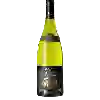
Winery Jean DumontBel Air Quincy
This wine generally goes well with vegetarian, rich fish (salmon, tuna etc) or shellfish.
Food and wine pairings with Bel Air Quincy
Pairings that work perfectly with Bel Air Quincy
Original food and wine pairings with Bel Air Quincy
The Bel Air Quincy of Winery Jean Dumont matches generally quite well with dishes of pork, shellfish or spicy food such as recipes of baked bread (tomato, mushroom, ham, cheese), scallops on a bed of leeks or chicken massala.
Details and technical informations about Winery Jean Dumont's Bel Air Quincy.
Discover the grape variety: Riminèse
Riminèse blanc is a grape variety that originated in France (Corsica). It produces a variety of grape specially used for the elaboration of wine. It is rare to find this grape to eat on our tables. The white Riminèse can be found in several vineyards: South-West, Cognac, Bordeaux, Provence & Corsica, Rhone Valley, Loire Valley, Savoie & Bugey, Beaujolais.
Informations about the Winery Jean Dumont
The Winery Jean Dumont is one of of the world's great estates. It offers 37 wines for sale in the of Quincy to come and discover on site or to buy online.
The wine region of Quincy
The wine region of Quincy is located in the region of Centre Loire of Loire Valley of France. Wineries and vineyards like the Domaine Henri Bourgeois or the Les Domaines Tatin produce mainly wines white, red and pink. The most planted grape varieties in the region of Quincy are Chenin blanc, Cabernet franc and Pinot noir, they are then used in wines in blends or as a single variety. On the nose of Quincy often reveals types of flavors of grapefruit, kiwi or stone and sometimes also flavors of oak, grass or apricot.
The wine region of Loire Valley
The Loire Valley is a key wine region in western France. It follows the course of the Loire River on its Long journey through the heart of France, from the inland hills of the Auvergne to the plains of the French Atlantic coast near Nantes (Muscadet country). Important in terms of quantity and quality, the region produces large quantities (about 4 million h/l each year) of everyday wines, as well as some of France's greatest wines. Diversity is another of the region's major assets; the styles of wine produced here range from the light, tangy Muscadet to the Sweet, honeyed Bonnezeaux, the Sparkling whites of Vouvray and the juicy, Tannic reds of Chinon and Saumur.
The word of the wine: Rootstock
American vine on which a French vine is grafted. This is the consequence of the phylloxera that destroyed the vineyard at the end of the 19th century: after much trial and error, it was discovered that the "pest" spared the roots of the American vines, and the technique became widespread.










